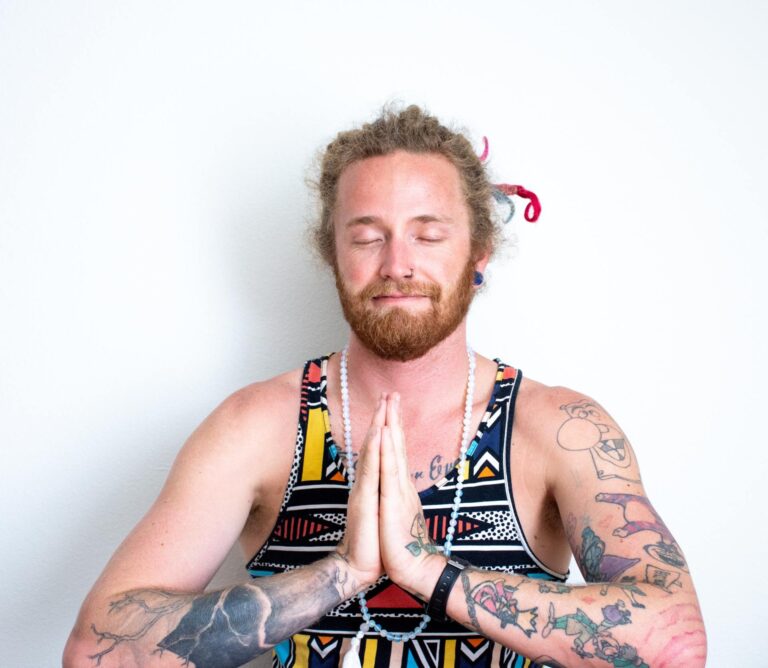Spiritual Materialism
The great Tibetan meditation teacher Chogyam Trunpa wrote that we often “deceive ourselves into thinking that we are developing spiritually, when instead we strengthen our egocentricity through spiritual techniques.” He called this kind of self-deception spiritual materialism. We all deal with spiritual materialism; Here is a list, from my book The Seeker’s Guide, of 10 common pitfalls of spiritual materialism that you may encounter on your spiritual journey.
There’s a fine line between narcissism and “following your bliss.” Without some degree of sacrifice for the greater good, self-discovery ultimately leads to plain old self-indulgence. Even as you work to heal and love your own tender self, be aware of your tendency toward excessive self-centeredness.
2) Superficiality
America’s new forms of spirituality and therapy are often accused of selling superficial and sunny answers to life’s complexities and pains. Ultimately, spirituality doesn’t work if we use it to protect ourselves from the harshness of real life. Any worldview that suggests that positive thinking always protects you from harm, or that there is something wrong with you when you suffer or fail, or that healing is not often complex, offers superficial promises.
3) The never-ending process of self-improvement
You can become so obsessed with your own self-improvement – your story, your victimhood, your mistakes, your fears – that instead of becoming free, you end up in a bond. This myopic focus on the self also leads to social apathy. It is simply not true that your self-empowerment and self-healing will necessarily lead to the health and happiness of others and of society. We must participate in the betterment of more than just ourselves.
4) Instant transformation
Just as some people are seduced by the never-ending process of self-exploration, some are disappointed when they do not find inner peace after reading a book, or during a daylong workshop, or even after two years of weekly therapy. Spiritual awakening takes patience, hard work and the grace of God.
5) Desire for magic
Part of the new American spirituality throws common sense overboard and looks for magical cures and miraculous people. The need to believe in all-powerful teachers, angel visitations, UFOs and other unexplained mysteries can obscure the ordinary magic of everyday life, which is proof enough of God and the miracle of life.
By democratizing spirituality and bringing it into the daily lives of every person, each of us runs the risk of becoming a messianic little pope or a humorless saint. If you find yourself becoming unbearably profound and feeling that you are somehow different from others and destined to become holy, you may be suffering from greatness.
7) Romanticizing indigenous cultures
In our politically correct times, there is a kind of reverse bias that just because something or someone comes from a different culture, especially an indigenous or minority culture, that it is somehow more valuable, more spiritual, or wiser. “Every time teachings come to a country from abroad, the problem of spiritual materialism is intensified,” writes Chogyam Trungpa.
8) The inner child’s tantrum
I once heard someone say, “Some people, when they complain that their prayers are not being answered, just don’t seem to realize that no is the answer.” Knowing what you want, and asking for it honestly, is a monumental achievement. But so does learning to accept God’s wisdom gracefully—when “He gives and when He takes.”
9) Breaking down traditions
Many modern seekers avoid the ritual trappings of a tradition with little respect for the depth behind it. This downplays powerful and elegant systems for spiritual growth that often require years of study. There is a difference between carefully creating a spiritual path that includes authentic practices from a variety of traditions, and flitting from flower to flower like a drunken honeybee.
10) The guru journey
Harry S. Truman lamented, “Memories are short; The hunger for power and glory is insatiable. Old tyrants leave. New ones take their place. It’s all very baffling and difficult.” Perhaps the most baffling and testing aspect of the new American spirituality is the disparity between spiritual teachings and the behavior of teachers. Men, women, Western, Eastern, fundamentalist, new-age, modern or indigenous – no one has escaped the temptation to abuse power. Things to watch out for: extravagant claims of enlightenment or healing; minimizing the hard work involved in any true spiritual or healing path; the excessive commercialism that betrays the deeper spiritual message; and the blind loyalty of followers to charlatans (be they gurus, therapists, preachers, healers or teachers). With their deceptive double standards, some gurus, therapists, and teachers have given mentorship a bad name and tarnished the image of humbling yourself in the face of a wiser and more experienced guide.

